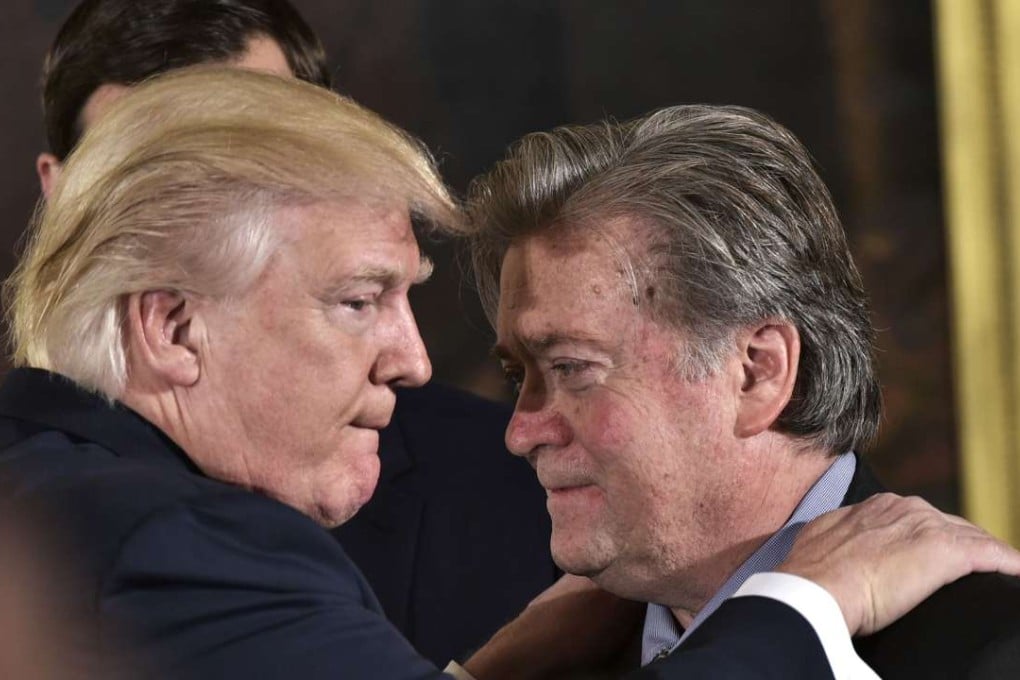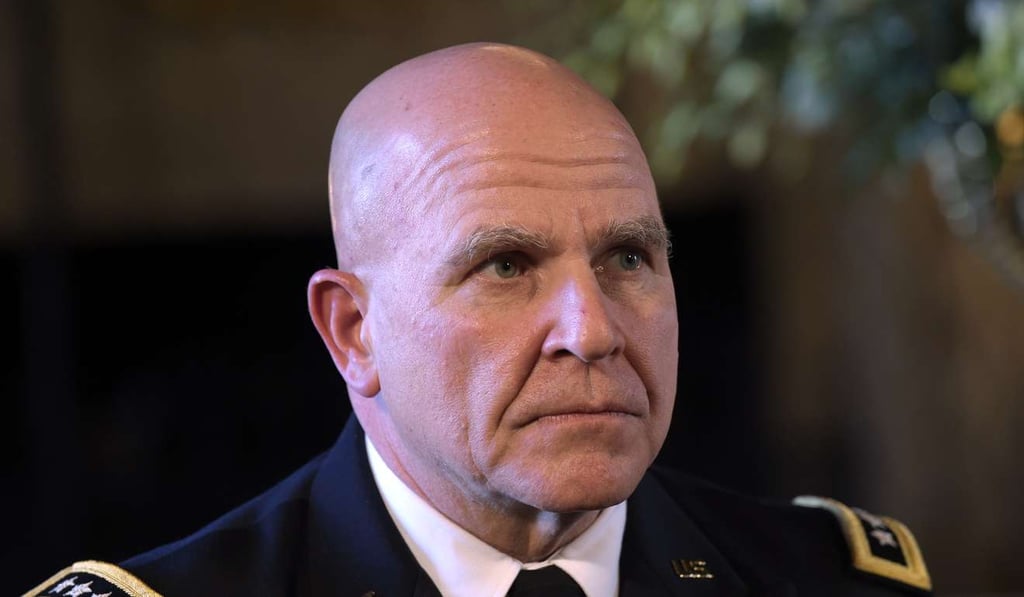Trump dumps chief strategist Steve Bannon from US National Security Council
Shakeup reinstating chairman of Joint Chiefs of Staff to council, a day before Trump summit with Xi Jinping, is seen as a victory for national security adviser H.R. McMaster

US President Donald Trump removed his chief strategist Steve Bannon from the National Security Council on Wednesday, reversing his controversial decision early this year to give a political adviser an unprecedented role in security discussions.
Trump’s overhaul of the NSC, confirmed by a White House official, also elevated General Joseph Dunford, chairman of the Joint Chiefs of Staff and Dan Coats, the director of National Intelligence who heads all 17 US intelligence agencies. The official said the change moves the NSC “back to its core function of what it’s supposed to do.”
It also appears to mark a victory for new national security adviser H.R. McMaster, who had told some national security experts he felt he was in a “battle to the death” with Bannon and others on the White House staff.

Trump is preparing for his first face-to-face meeting on Thursday and Friday with Chinese President Xi Jinping with the threat of North Korea’s nuclear and missile programs a key component of their talks.
Bannon’s seat on the NSC’s “principals’ committee”, a group that includes the secretaries of state, defense and other ranking aides, was taken by Rick Perry, who as energy secretary is charged with overseeing the US nuclear weapons arsenal.